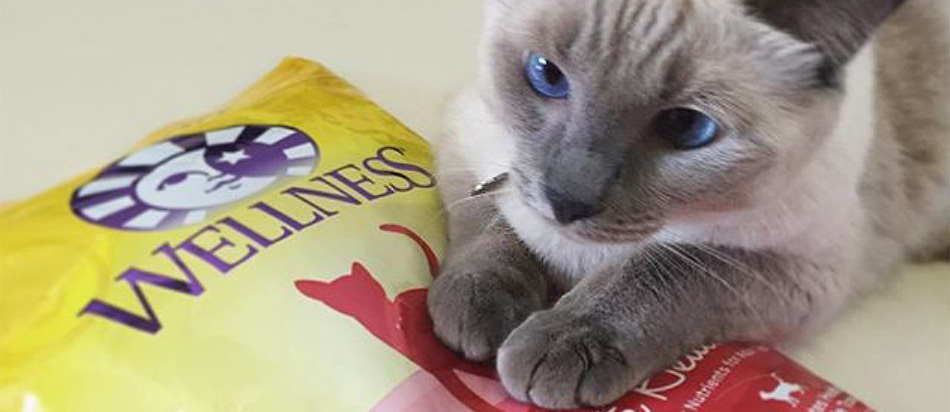How To Transition From One Kind Of Dry Food To Another

Whenever introducing your cat to a new kibble, it’s a good idea to gradually transition to the new dry food recipe over a 7 – 10 day period.
An extended transition time frame allows acceptance of the new flavor in the food bowl. And, it will also avoid potential stomach upsets that could cause diarrhea as a slow changeover allows the digestive system to adjust to new ingredients.
Add about 10 per cent of the new kibble to the bowl every day. If after a few days, your cat notices the difference and there are signs of resistance, reduce the new food by ten percent, and, if necessary, hold off on the transition for a couple days before trying again. There is no rush! And remember, if you cat is really resistant to a particular new recipe, the unused food, still in the original bag, along with the receipt can be returned to the store where it was purchased for a full refund. All Wellness dry food recipes are covered by this Catisfaction Guarantee.
At the same time you are transitioning the new kibble into the food bowl, consider serving it to her as a treat. It can be as few as five or six kibble. If you feed more than that, remember to make the calorie and amount adjustments to her food bowl so that you are not over-feeding during this transition phase.
Serving the food in the right bowl can help with the transition too. Cats like to eat out of broader, flatter bowls so that their whiskers don’t touch the sides. This is known as whisker stress. Avoid very tiny bowls for both food and water all together.
Always ensure that the food bowls are not placed in a high traffic area. Cats like privacy when they eat and this is important when transitioning over to a new dry food recipe. Also make sure that there is plenty of fresh water available near the kibble bowl as well as in other locations throughout the home. It’s important for a cat to be properly hydrated especially on a dry food diet.
What Is On The Menu
The Wellness Complete Health recipes offer cats a variety of chicken options in a small round kibble that cats of all ages are able to pick up easily, chew and digest. The Adult Chicken Recipe has deboned chicken as the first ingredient with chicken meal and rice. There is a grain-free option too, ideal for cats with sensitive tummies. The Adult Natural Hairball recipe is made from chicken meal and rice to prevent hairballs from forming and to aid swallowed fur to move smoothly through the digestive system. There is a chicken recipe for kittens as well as a salmon and herring meal recipe suitable for cats with a more sedentary indoor lifestyle to control weight management.
All the ingredients are clearly highlighted on the packaging for easy decision-making.
Similarly, the Wellness Core kibble recipes offer an indoor-weight management formula made from chicken with turkey and chicken meal as key ingredients and the Original Turkey recipe offers cats a diet that is 65 per cent protein with turkey as the first ingredient.
Keep you pet’s dry food it its original packaging. Do not decant directly into a plastic container as this may taint the taste of the food. Rather place the entire bag in an attractive can to ensure it remains dry and fresh.
Talk to your pet while preparing the food bowl and putting it down. It’s a wonderful way to spend quality time together especially during the transition phase. Consider it the feline equivalent of sitting down at the table to a meal with family.




